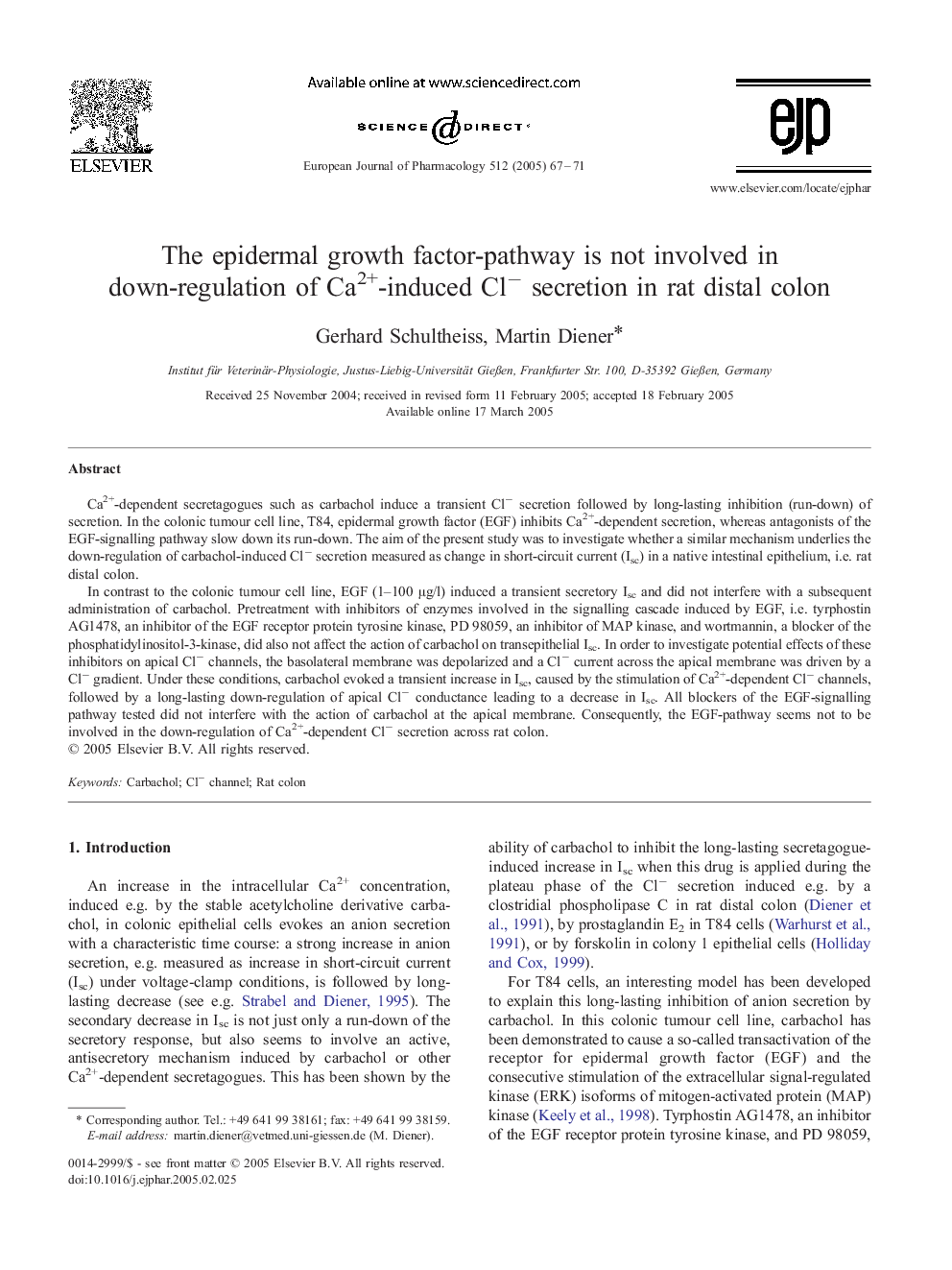| Article ID | Journal | Published Year | Pages | File Type |
|---|---|---|---|---|
| 9921418 | European Journal of Pharmacology | 2005 | 5 Pages |
Abstract
In contrast to the colonic tumour cell line, EGF (1-100 μg/l) induced a transient secretory Isc and did not interfere with a subsequent administration of carbachol. Pretreatment with inhibitors of enzymes involved in the signalling cascade induced by EGF, i.e. tyrphostin AG1478, an inhibitor of the EGF receptor protein tyrosine kinase, PD 98059, an inhibitor of MAP kinase, and wortmannin, a blocker of the phosphatidylinositol-3-kinase, did also not affect the action of carbachol on transepithelial Isc. In order to investigate potential effects of these inhibitors on apical Clâ channels, the basolateral membrane was depolarized and a Clâ current across the apical membrane was driven by a Clâ gradient. Under these conditions, carbachol evoked a transient increase in Isc, caused by the stimulation of Ca2+-dependent Clâ channels, followed by a long-lasting down-regulation of apical Clâ conductance leading to a decrease in Isc. All blockers of the EGF-signalling pathway tested did not interfere with the action of carbachol at the apical membrane. Consequently, the EGF-pathway seems not to be involved in the down-regulation of Ca2+-dependent Clâ secretion across rat colon.
Keywords
Related Topics
Life Sciences
Neuroscience
Cellular and Molecular Neuroscience
Authors
Gerhard Schultheiss, Martin Diener,
